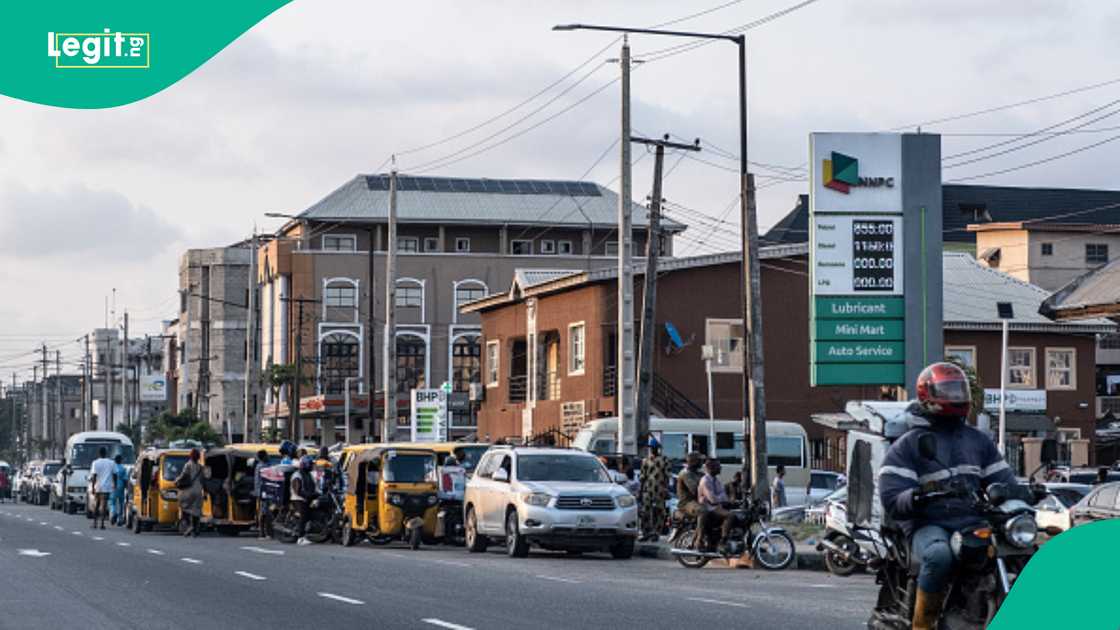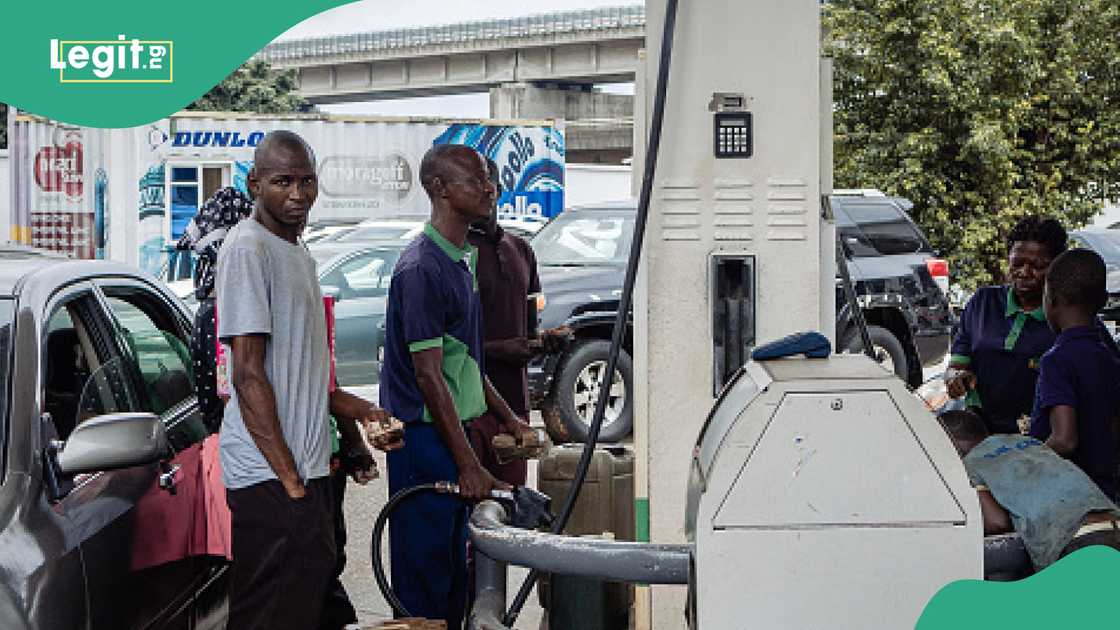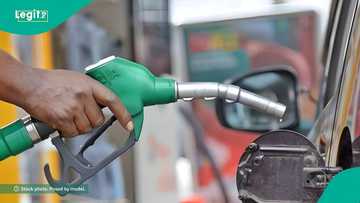Relief for Nigerians as Filling Stations Reduce Petrol Pump Price by N15
- Filling stations, including Matrix Energy in Abuja, have decided to reduce petrol prices petrol prices
- The price drop follows falling global crude oil prices and improved local supply thanks to the Dangote refinery
- Analysts say the drop in global oil prices will lead to further petrol price reductions if the trend continues
Legit.ng journalist Dave Ibemere has over a decade of business journalism experience with in-depth knowledge of the Nigerian economy, stocks, and general market trends.
Independent petroleum marketers in Nigeria's capital city, Abuja, have slashed the pump prices of Premium Motor Spirit (petrol) by up to N15 per litre.

Source: Getty Images
Punch reports that two A.Y.M Shafa filling stations along Airport Road in Abuja reduced their pump price to N915 per litre, down from N930 a day earlier.
Also, Matrix Energy, operating along the same axis, implemented a similar adjustment.
Changes were also seen at NIPCO outlets dropped their rates to N925 per litre from N950, while Conoil stations sold petrol at N935 per litre.
Why are fuel prices reducing?
The reductions come in the wake of volatility in international oil markets, driven by oversupply concerns and weakening demand projections.
On Monday, May 5, 2025, the price of Nigerian crude fell below the Federal Government’s 2025 budget benchmark of $75 per barrel, stoking fears of potential revenue shortfalls.
Bonny Light crude traded at $78.62 per barrel, while Brass River and Qua Iboe grades dropped significantly to $64.60 and $64.65 per barrel, respectively. The slide followed signals from OPEC+ members about intentions to increase production.

Source: Getty Images
Olatide Jeremiah, oil and gas analyst and CEO of Petroleumprice, told Legit.ng that the fuel price will bring relief to Nigerians.
His words:
“The decline in crude oil prices has a direct impact on depot and retail fuel prices in Nigeria, as crude makes up around 80% of the production cost of refined petroleum products globally. Nigerians may soon be buying petrol at N800 per litre and diesel at N1,000, with crude oil projected to trade between $60 and $63 throughout 2025.

Read also
Price war rages as top filling stations reduce petrol costs again nationwide, crude falls further
"This outlook is driven by several factors, including the ongoing effects of the US-China trade war, weakening global demand, and increasing output from OPEC members.
"These conditions are likely to keep crude prices under pressure.”
Chinedu Ukadike, National Publicity Secretary of the Independent Petroleum Marketers Association of Nigeria (IPMAN), confirmed that domestic fuel prices are closely linked to global crude benchmarks and the naira-dollar exchange rate.
Ukadike stated:
“Price changes reflect international market conditions. The Federal Government’s decision to sell crude to the Dangote Refinery in naira is expected to accelerate further reductions in pump prices."
Impact of petrol price drop
The recent reduction in petrol prices in Nigeria presents both immediate relief and long-term challenges for the economy.
A decrease in fuel prices directly alleviates the financial burden on Nigerians, particularly in transportation and goods distribution.
Lower petrol prices reduce the cost of commuting, freight, and production, which in turn helps businesses lower operating costs.
This may reduce inflationary pressures in the short term, providing some relief to consumers who have been grappling with the rising cost of living.
Households could also see an increase in disposable income, which may stimulate domestic consumption, thereby benefiting retail and service industries.
However, the drop in petrol prices could have adverse effects on the broader economy. Nigeria's government heavily relies on oil revenues, and a significant decrease in fuel prices can lead to lower government earnings, potentially affecting public spending and infrastructure projects.
Moreover, the reduction in fuel prices may diminish the urgency to diversify Nigeria's energy sector, delaying investments in alternative sources of energy.
Furthermore, sustained volatility in global oil markets, which drives fuel prices, could create economic instability, affecting long-term planning and investor confidence.
Therefore, while short-term relief is visible, sustained economic growth will require a balanced approach to energy management and fiscal policy.
Petrol landing cost drops
Earlier, Legit.ng reported that importers of petroleum products into Nigeria are set to compete with Dangote Refinery's fuel prices.
The cost of landing petrol in the country has dropped in recent days following changes in global crude oil prices.
Already, marketers secured regulatory approval to import 117,000 metric tonnes, which is equivalent to 156.897 million litres.
The article was updated with additional information by the head of the business desk, Victor Enengedi.
Proofreading by James Ojo, copy editor at Legit.ng.
Source: Legit.ng





